Health data and COVID-19 technologies
Exploring the impact of health technologies on people and society in the context of the COVID-19 pandemic.
The context
Health and social care were at the frontline of the response to the COVID-19 pandemic, which saw a rapid acceleration of the use of data-driven infrastructures and technologies: from dashboards enabling the prediction of healthcare demand and risk scores that prioritise vaccine rollouts, through to the adoption of digital contact tracing tools and vaccine certification.
Debate about the appropriate use and impact of these technologies continues, encompassing a range of societal and ethical questions related to data governance, privacy, power and inequalities. The disparate impact of the pandemic on people suffering from social and health inequalities has seen parallels in an emerging ‘data divide’ between how people are reflected in, and benefit from data-driven approaches. Asymmetries of power have also emerged in the way health data is governed and collected for the longer term.
Beyond the COVID-19 pandemic, there has been much excitement about the potential for new health–data applications and data-driven technologies to drive a post-pandemic overhaul of health systems, and to create resilience against (and even prevent) the next pandemic. But there are still many unanswered questions about the impact and legacy of data-driven responses to the pandemic, and in particular how their roll-out affected existing societal inequalities and disadvantage. These include:
- What is the long-term legacy of health data and technologies, beyond the pandemic?
- What impact has the use of data in the pandemic had on society, and specifically, inequalities?
- How can technologists and policymakers prepare themselves for future crises, and what tools do they require to do so?
- How can technologists, policymakers and other actors in the ecosystem steward data in a trustworthy way and for public benefit – in a pandemic and beyond?
Ada’s approach
We research the datafication of health and the increasing use of data-driven technologies in the health and social-care system, accelerated by the COVID-19 pandemic. During the pandemic, we tracked the rollout of data-driven systems, responding to the rapidly evolving landscape in terms of policy, practice and public attitudes. Our aim is to assess and document the immediate and long-term impacts of COVID-19 technologies on the healthcare system, on patients and on inequalities.
Our work gathers evidence using different methodological approaches such as surveys, expert workshops, public deliberation exercises and interviews with various stakeholders. Examples of these include:
Rapid-response research into specific, data-driven technologies during the COVID-19 pandemic
- In April 2020, the Ada Lovelace Institute published Exit through the App Store, a rapid evidence review that examined the technical, legal and societal implications of new COVID-19 technologies such as digital contact tracing apps.
- In May 2021, we published Checkpoints for vaccine passports, the culmination of a year-long research project into the appropriate pre-conditions for vaccine certification systems.
A two-year research inquiry into the impact of COVID-19 technologies on inequalities
In partnership with the Health Foundation, we have analysed the impact of data-driven systems on health and social care throughout the pandemic. Our work in this area is ongoing and aims to produce recommendations for how these systems can be designed and deployed in ways that mitigate their negative impacts and promote their benefits.
Trackers and monitors
Throughout the pandemic, we developed and maintained:
- a global comparative resource tracking the roll-out of digital contact tracing apps
- an international monitor of vaccine passports
- a tracker of public attitudes research on COVID-19 technologies commissioned and undertaken by a range of organisations.
Our current work in this area focuses on the global legacy of digital contact tracing apps and vaccine passports.
Regional public engagement, citizen juries and deliberations to understand the public’s views and experiences
Public engagement is a core research methodology for this programme. We’ve conducted:
- public attitudes surveys to understand attitudes towards a range of technologies deployed during the COVID-19 pandemic for health outcomes, which resulted in The data divide,
- online public deliberations to explore attitudes to the use of COVID-19 technologies for transitioning out of lockdown, which resulted in Confidence in a crisis,
- a citizens’ jury on the role of good governance and the rule of law in building public trust in data-driven responses to public health emergencies, which resulted in The rule of trust.
Futures and foresight research on trends in health data
- In October 2020, we published The data will see you now, a report exploring the datafication of health and how it challenges existing practical, legal and conceptual definitions of what counts as ‘health data’.
- Our joint project with the Nuffield Council on Bioethics, AI and genomics futures, is currently exploring how AI is transforming the capabilities and practice of genomic science.
The impact we seek
Our Health data and COVID-19 technologies programme enables us to achieve our strategic goals in the following ways:
- We have anticipated transformative innovations in the context of the COVID-19 pandemic by providing early guidance, and surfacing a range of technical, legal and societal implications of new and nascent technologies such as digital contact tracing apps and vaccine passports.
- We are interrogating inequalities caused by data and AI by centring much of our research on health data and data-driven technologies on their impact on health and social inequalities, and the lived experiences of people who suffer disadvantage and marginalisation.
- We are amplifying the voices of people through placing public attitudes and public engagement at the core of our understanding of the benefits and disadvantages of the datafication of health and of the pandemic response.
- We are promoting sustainable data stewardship by seeking to identify approaches and mechanisms for making the use of health data trustworthy and responsible, in the pandemic and beyond.
- We are creating space for diverse scholarship by partnering with a range of different organisations such as the Health Foundation and the Bingham Centre to bring an interdisciplinary lens to these issues.
Projects

COVID-19 technologies: international evidence, policy and practice
This project builds on work undertaken by the Ada Lovelace Institute in 2020 and 2021 to rapidly track, monitor and understand COVID-19 technologies

AI and genomics futures
This joint project with the Nuffield Council on Bioethics explores how AI is transforming the capabilities and practice of genomic science.

The role of good governance and the rule of law in building public trust in data-driven responses to public health emergencies
Citizens' juries on the trustworthiness of data-driven technologies used in a public health emergency.

Vaccine passports and COVID-19 status apps
An evidence review and expert deliberation of the practical and ethical issues around digital vaccine passports and COVID-19 status apps.

Rapid, online deliberation on COVID-19 technologies
Rapid, online deliberation with 28 members of the public on COVID-19 exit strategies.
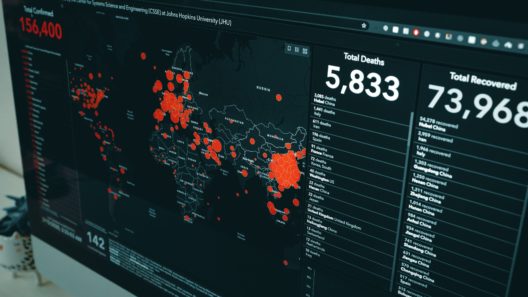
Tackling health and social inequalities in data-driven systems
Research to examine the interaction between data-driven systems and health and social inequalities, in the wake of COVID-19.
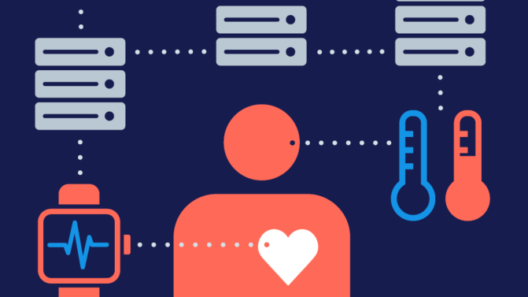
Boundaries of health data
Exploring how the datafication of health occurs and what consequences it has for people and society.
Reports
Access denied?
Socioeconomic inequalities in digital health services
DNA.I.
Early findings and emerging questions on the use of AI in genomics
Lessons from the App Store
Insights and learnings from COVID-19 technologies
A knotted pipeline
Data-driven systems and inequalities in health and social care
The rule of trust
Findings from citizens’ juries on the good governance of data in pandemics.
Checkpoints for vaccine passports
Requirements that governments and developers will need to deliver in order for any vaccine passport system to deliver societal benefit
The data divide
Public attitudes to tackling social and health inequalities in the COVID-19 pandemic and beyond
What place should COVID-19 vaccine passports have in society?
Findings from a rapid expert deliberation to consider the risks and benefits of the potential roll-out of digital vaccine passports
Learning data lessons: data access and sharing during COVID-19
Findings from an expert workshop exploring lessons learned from data-driven initiatives that emerged in response to COVID-19.
No green lights, no red lines
Lessons to assist Government and policymakers navigating difficult dilemmas when deploying data-driven technologies to manage the pandemic
Events
Tackling health and social inequalities in data-driven systems
The event follows a three-year long programme of research, conducted in partnership with The Health Foundation.
Pandemic preparedness and public health in the algorithmic age
Lessons from the App Store: Insights and learnings from COVID-19 technologies
Data-driven responses to the COVID-19 pandemic
What have we learned, and how can we design a future, equitable health and social care system?
Lessons learned from COVID-19: how should data usage during the pandemic shape the future?
Exploring the foundational premises for delivering ‘world-leading data protection standards’ that benefit people and achieve societal goals
The socio-technical challenges of designing and building a vaccine passport system
The fourth in a series of public evidence events on vaccine passports and COVID status apps.
The ethical implications of vaccine passports and COVID-19 status apps
The third in a series of public evidence events on vaccine passports and COVID status apps.
The epidemiological and economic impact of vaccine passports and COVID status apps
The second in a series of public evidence events on vaccine passports and COVID status apps.
The history and uses of vaccine passports and COVID status apps
The first in a series of public evidence events on vaccine passports and COVID status apps.
Data Justice and COVID-19 Book Launch
What will be the enduring impact of the COVID-19 crisis on surveillance practices?
Public health identities in the private sector
The third in our series of events addressing the nascent ‘public health identity’ systems developing around the world
The societal impacts of introducing a public health identity system: legal, social and ethical issues
The second in our series of events addressing the nascent ‘public health identity’ systems developing around the world.
Deliberating rapidly and online about COVID-19 technologies
The second of two events sharing what we learned from a rapid online deliberation project to explore public attitudes to COVID-19 exit strategies.
Exit through the App Store?
A summary of the third panel on the Ethics & Society stage at CogX 2020 - Day 1
Testing immunity certificates: do the new antibody tests open the door to the creation of a ‘public health identity’?
The first in our new series of virtual events addressing health identity systems developing in response to COVID-19.
Test, trace and trust: digital technologies and the COVID-19 response across the UK’s devolved nations
This is our third virtual event, exploring approaches of different nation states to using technology to control the spread of COVID-19.
Contact tracing: to centralise or not to centralise, that is the question
This is our second virtual event, exploring approaches of different nation states to using technology to control the spread of COVID-19.
No silver bullet: how can the UK government use technologies to transition out of COVID-19 lockdown while protecting public health?
In the first in a series of webinars exploring the current questions raised by the COVID-19 global health crisis.
Beyond the exit strategy: ethical uses of data-driven technology in the fight against COVID-19
How can we achieve the ethical use of data-driven technologies to combat COVID-19?
From the Ada blog

Genomics, AI and the politics of a data-first approach to medical evidence
What are the consequences of new forms of data-driven methods for health outcomes?

Evaluating data-driven COVID-19 technologies through a human-centred approach
What we can learn from missing evidence on digital contact tracing and vaccine passports?

Understanding COVID-19 certificates in the context of recent health securitisation trends
What narratives have framed pandemic-related technologies and who do they leave out?

The Ada Lovelace Institute in 2022
Ada’s Director Carly Kind reflects on the last year and looks ahead to 2023
- AI and data ethics
- AI policy
- Algorithm impact assessment
- Biometric technologies
- Biometrics
- Biometrics regulation
- Contact tracing
- Data governance
- Data regulation
- Digital vaccine passports
- Enabling a responsible AI ecosystem
- Ethics and accountability in practice
- Europe
- Facial recognition technology
- Health data
- Health data and COVID-19 tech
- Health technology
- JUST AI
- Public attitudes
- Public-sector use of data & algorithms
- Recommendation systems
- The future of regulation

Examining the pros and cons of digital COVID certificates in the EU
Can an individualised data technology work in a public health context?

The tension between the promises and realities of data use in health and social care
A partnership with the Health Foundation to study the relationships between data-driven systems and inequalities in health

How to improve contact tracing apps for future public health crises
Lessons learned from the UK’s response to the COVID-19 pandemic

Don’t start with the data: a people-centred approach to addressing health inequalities
Why identities and experiences can’t be reduced to categories

Minding the genomic data gap: COVID-19, genomics and health inequalities
The role of genomics in the data-driven pandemic response
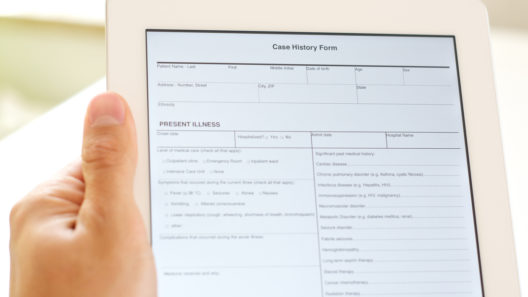
Turning distrust in data sharing into ‘engage, deliberate, decide’
Five lessons from the GP Data for Planning and Research scheme (GPDPR)

Why the COVID-19 shielded patient list might both compound and address inequalities
Wicked problems in the use of data-driven systems

A shot in the arm, not a shot in the dark
7 steps for Government to clarify whether vaccine passports should have a place in society

Governments must offer clarity on vaccine passports
Why it's essential to explore the evidence, risks and benefits of vaccine passports and COVID status apps before any potential roll out

COVID-19, the gig economy and the hunger for surveillance
The hidden, and unfairly distributed, costs of convenience on gig economy workers

Health datafication, digital phenotyping and the ‘Internet of Health’
A new report from the Ada Lovelace Institute explores the datafication of health, how it manifests and the consequences for people and society.
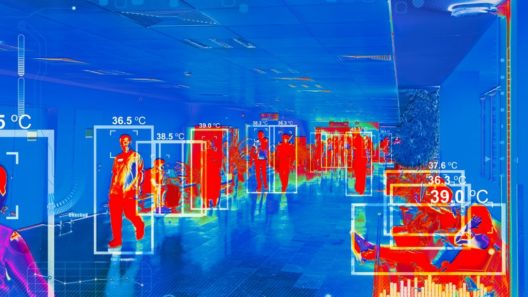
Can digital immunity certificates be introduced in a non-discriminatory way?
New forms of technology are coming. How do we ensure they’re deployed in a way that conforms to equality regulation?

UK contact tracing apps: the view from Northern Ireland and Scotland
What can we learn about successful approaches to COVID-19 technologies from the devolved nations of the UK?
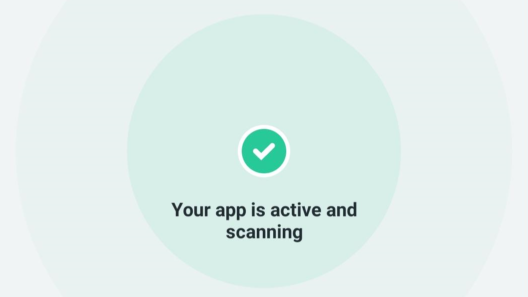
The NHS COVID-19 app: is it an enduring public health technology?
Will the long-awaited contract tracing app deliver on its promises for 2020 and beyond?
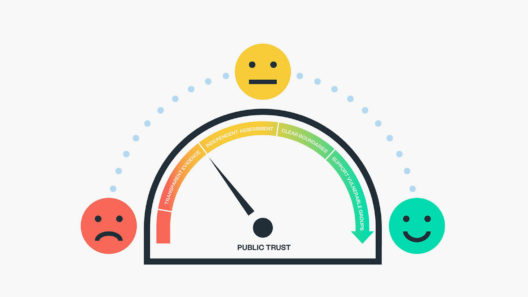
Why algorithms aren’t the answer: what the public needs to trust technology
A ten-point checklist for the Test and Trace team working on contact tracing app 2.0, based on the findings of rapid online public deliberation.

COVID-19: How public health emergencies have been repurposed as security threats
Shedding light on the capacity of technology to trace and monitor the movement of individuals.